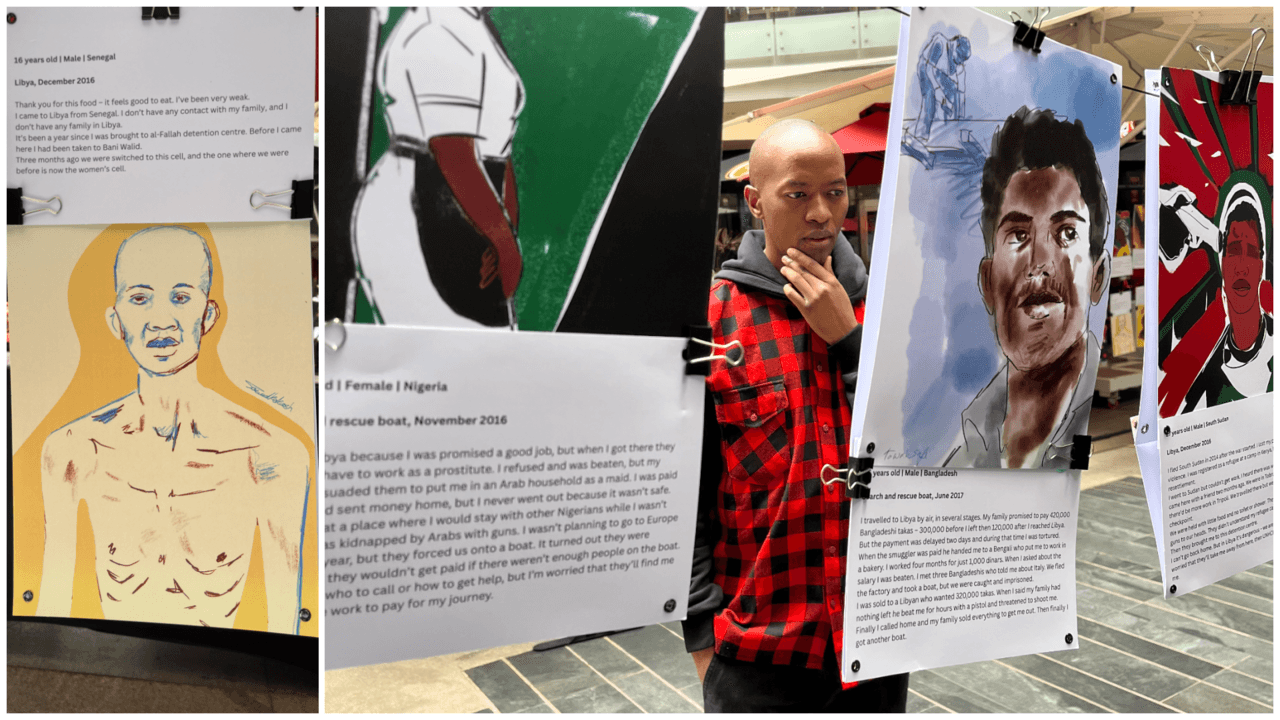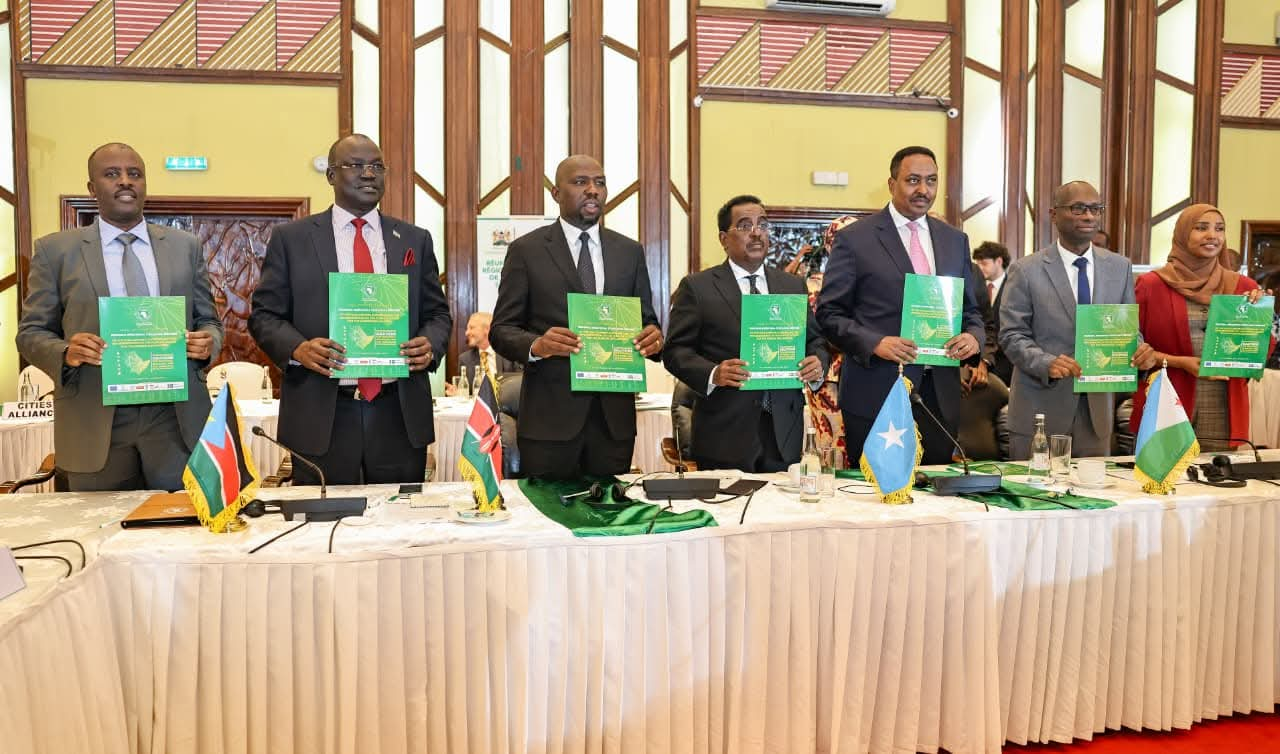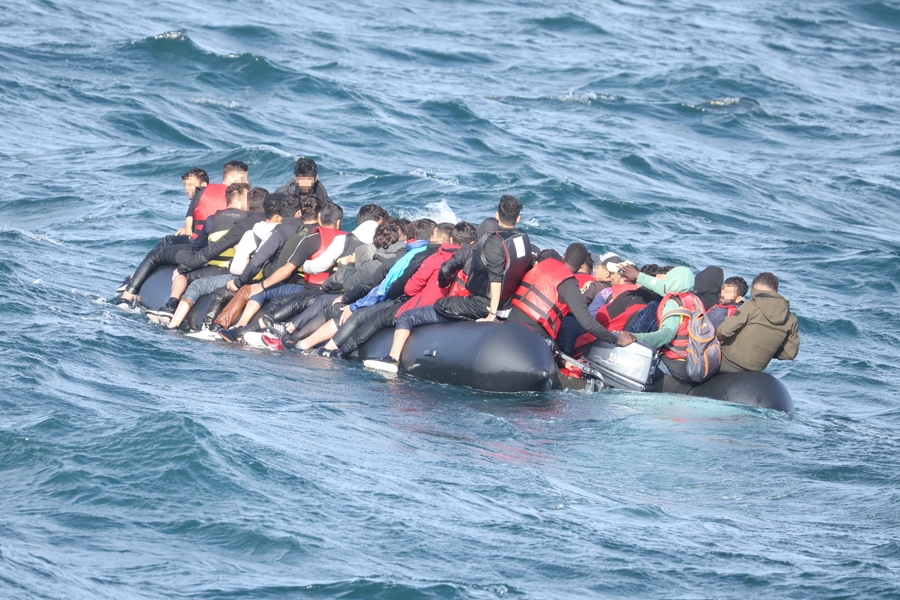

Interior Cabinet Secretary Kipchumba Murkomen has urged the international community to step up support for countries hosting refugees, warning that declining funding threatens progress in the region.
Murkomen emphasised Kenya’s commitment to providing protection and sustainable solutions for displaced populations.
“Over 860,000 refugees currently reside in Kenya, while the IGAD region hosts about six million displaced persons. Our host communities continue to bear immense responsibilities amid stretched social services and limited resources,” he said.
Speaking during the IGAD Support Platform stock-taking meeting for the Global Compact on Refugees (GCR) in Nairobi, Murkomen highlighted that global displacement has reached unprecedented levels, with more than 122 million people forcibly displaced worldwide.
He pointed to conflicts, climate change, and rapid urbanisation as compounding pressures that leave many refugees in prolonged states of limbo.
The CS underscored the relevance of the Global Compact on Refugees, adopted in 2018, which aims to ease pressures on host countries, enhance refugee self-reliance, expand access to third-country solutions, and support conditions for safe and dignified returns.
He stressed that these objectives remain crucial today as host countries struggle with population growth, environmental degradation, and funding shortfalls.
“Funding cuts to refugee operations have reached levels never seen before, putting host countries like Kenya in increasingly precarious positions and threatening the progress made over the years,” Murkomen said.
He also highlighted Kenya’s experience in hosting refugees for over three decades as a source of valuable lessons for the global community.

Murkomen noted that refugee-hosting counties illustrate how fragile existence intersects with urban pressures, climate stress, and limited resources, underscoring the need for development-oriented solutions integrated with humanitarian interventions.
Central to Kenya’s approach is the Shirika Plan for Refugees and Host Communities, launched in March 2025.
The plan, aligned with the 2021 Refugees Act, aims to transform refugee camps into integrated, climate-resilient settlements, promote socio-economic empowerment, and foster self-reliance for both refugees and host communities.
Murkomen stressed that the plan reflects Kenya’s belief that refugees should not merely be recipients of aid but active contributors to national and regional development.
The CS called on IGAD member states and international partners to strengthen cooperation and ensure equitable burden- and responsibility-sharing.
He warned that disproportionate pressure on host countries risks jeopardizing the future of displaced children, who make up the largest segment of the refugee population.
“Predictable, sustainable, and well-coordinated support from the international community is essential. We urge partners to intensify support in education, health, water, infrastructure, and livelihoods, while promoting climate-resilient interventions that link displacement to environmental challenges,” he said.
Various government officials from IGAD, including Secretary General Workneh Gebeyehu, as well as representatives from UNHCR and the European Union, attended the conference.
Gebeyehu expressed gratitude to partners who have continued to support refugees, including new actors who have recently committed to providing assistance.
With the ever-increasing number of displaced persons and the current context of declining humanitarian and development aid, Gebeyehu acknowledged that the resolve to support refugees will be tested to the limit.
“But I know that we shall remain steadfast in hosting and supporting our brothers and sisters,” he said.
He also thanked representatives from IGAD member states for their commitment to addressing the challenges faced by those forced to flee their home countries.
“No one chooses to be displaced. It is therefore the responsibility of all of us to treat displaced persons with equality and dignity,” Gebeyehu stated.
Murkomen further stressed the importance of regional coordination in mobility, voluntary returns, and durable solutions, noting that the success of initiatives such as the Shirika Plan depends on genuine collaboration and investment from all stakeholders.
Highlighting IGAD’s role, Murkomen acknowledged the progress made through thematic declarations, including the Nairobi Declaration on Durable Solutions for Somali Refugees, the Djibouti Declaration on Refugee Education, and the Mombasa Declaration on Health.
He called on member states to honestly assess implementation progress and strengthen regional mechanisms to achieve tangible and lasting impacts.
Murkomen also reaffirmed Kenya’s commitment to sustainable and inclusive solutions for refugees and host communities.
This, as he urged the international community to act with urgency and unity, ensuring that no refugee or host community is left behind.
The Nairobi meeting was convened with the aim of assessing the current dynamics and trends of forced displacement in the IGAD region. It also sought to review achievements, challenges, and opportunities in delivering Global Compact on Refugees (GCR) pledges and commitments ahead of the GRF Progress Review.
Additionally, the meeting aimed to take stock of progress in implementing the Nairobi Declaration, including its thematic declarations and plans of action.
It also seeks to mobilise additional actors to strengthen displacement responses across the region.
Participants will include delegates and senior experts from IGAD member states, the IGAD Secretariat, humanitarian and development partners, civil society organizations, and the private sector.
During the technical meeting, they will present and deliberate on progress made in implementing the GCR pledges and the commitments outlined in the Nairobi Declaration and Plan of Action.
The ministerial segment will build on the technical discussions, consolidating recommendations and adopting a communiqué to guide future action.
It underscored IGAD’s commitment to coordinated, evidence-based responses to forced displacement, promoting collaboration between governments, partners, and stakeholders to address the challenges facing displaced populations across the region.
















